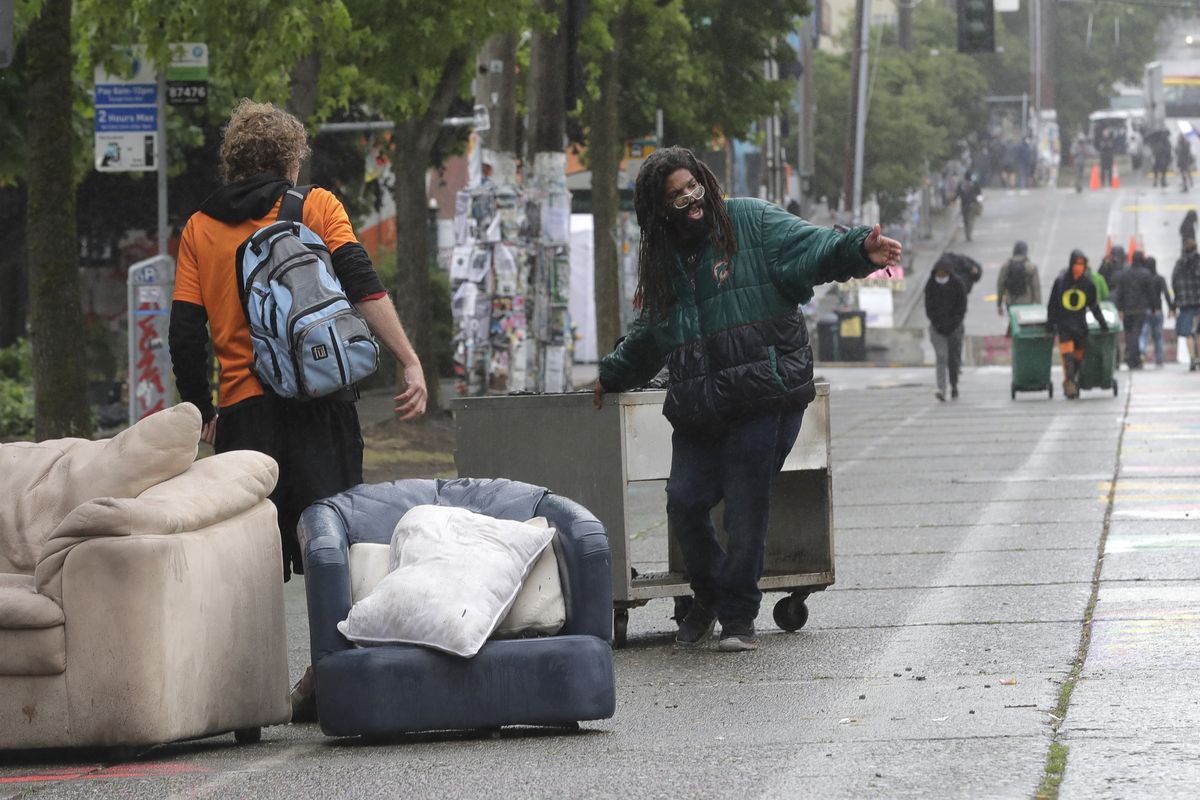City crews remove some barriers from Seattle protest zone

SEATTLE – Seattle city crews used heavy equipment Tuesday to remove makeshift barriers around the city’s “occupied” protest zone following two fatal shootings in the area.
Demonstrators dragged couches and other items to replace the structures. But those were largely gone later Tuesday.
People have occupied several blocks around a park and the Seattle Police Department’s East Precinct for about two weeks after police abandoned the building following standoffs and clashes with protesters calling for racial justice and an end to police brutality.
Seattle police Assistant Chief Adrian Diaz said the large, makeshift barriers would be removed in incremental steps to allow traffic to move through portions of a road that had been closed off.
“So far, you know, everything is peaceful this morning, so that’s a good sign,” Diaz told The Seattle Times.
Cement barricades that remained in front of the Seattle Police Department East Precinct building Tuesday were fortified by protesters with chunks of concrete and tarps.
There have been increasing calls by critics, including President Donald Trump, to remove protesters from the “Capitol Hill Occupied Protest” area east of downtown following the fatal shooting Monday of a 16-year-old boy and the June 20 killing of a 19-year-old man.
Protesters say they should not be blamed for the violence in the area. People continued to add artwork, flowers and candles at a memorial for the 16-year-old on Tuesday.
Police Chief Carmen Best has said the shootings are obscuring the message of racial justice promoted by protesters.
Nearby businesses and property owners filed a federal lawsuit against the city last week, saying officials have been too tolerant of those who created the zone and that officials have deprived property owners of their property rights by allowing the zone to continue existing.
Also Tuesday, Mayor Jenny Durkan asked the City Council to investigate council member Kshama Sawant, accusing her of opening City Hall to protesters on June 9 and participating in a protest march to Durkan’s home on Sunday.
“She and organizers knew that my address was protected under the state confidentiality program because of threats against me due largely to my work as U.S. attorney,” Durkan wrote.
Sawant said she had not organized the march and wasn’t taking Durkan’s words personally, The Seattle Times reported.
“In reality, this is an attack on working people’s movements, and everything we are fighting for, by a corporate politician desperately looking to distract from her failures of leadership and politically bankrupt administration,” Sawant said in a statement.
Earlier this month Sawant and other council members called on the mayor to resign over what they called the Police Department’s militaristic response to protests. Durkan has said she will not resign.